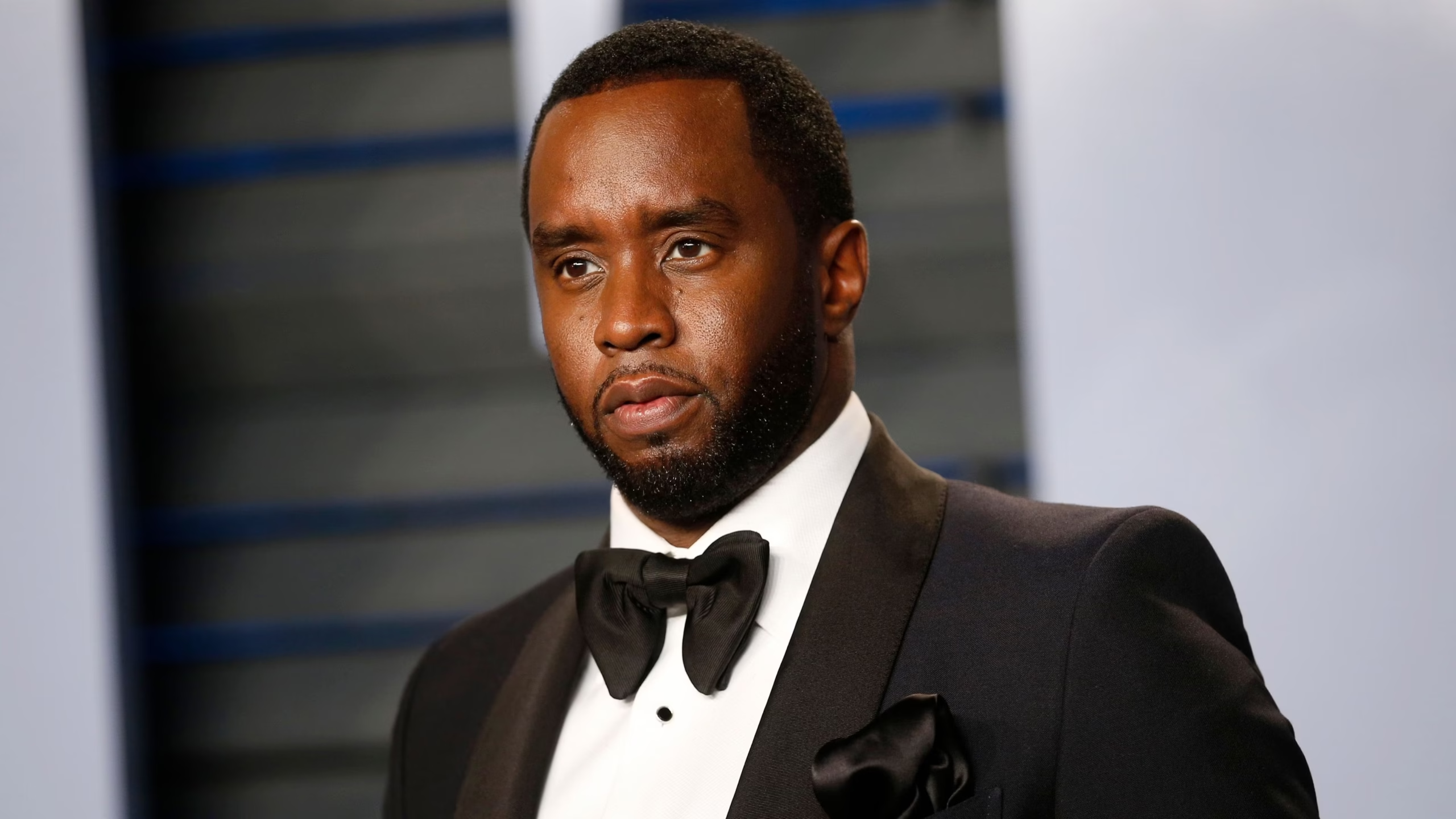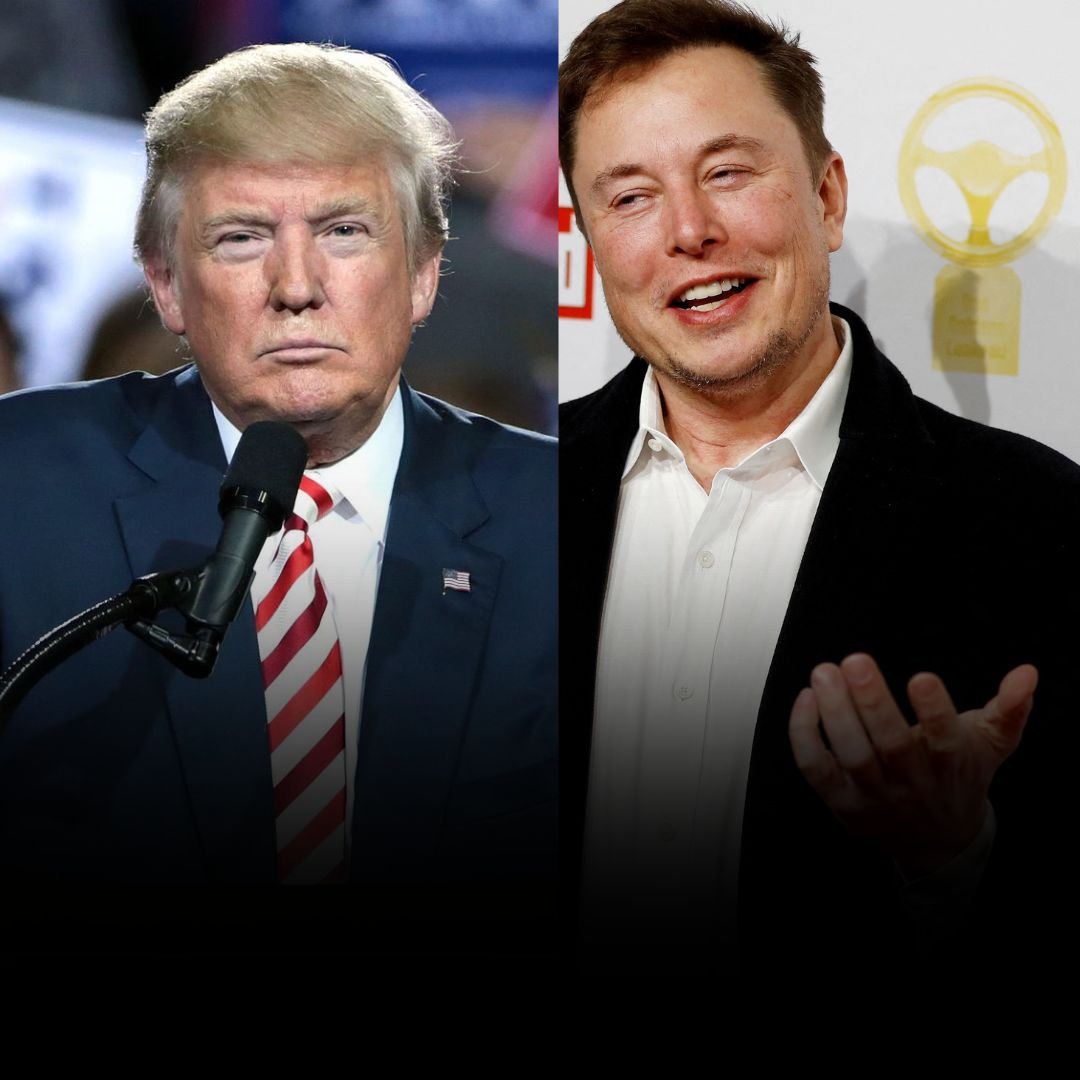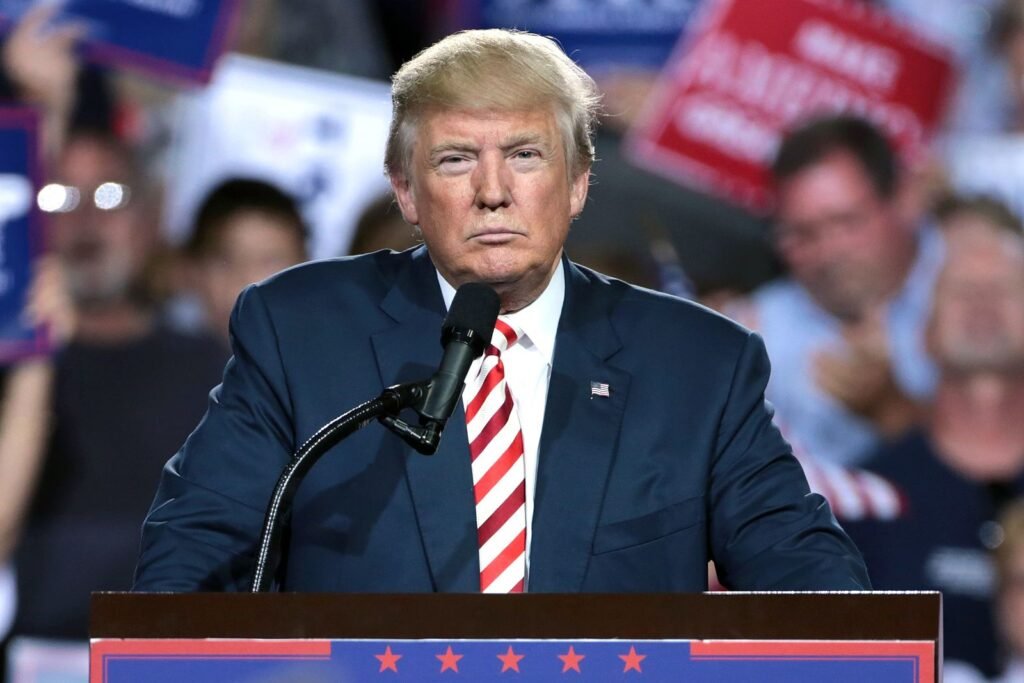News
Mexico Sues Google Over “Gulf of America” Name Change Amid U.S. Political Push
Mexico has launched a lawsuit against Google after the tech giant changed the name of the “Gulf of Mexico” to the “Gulf of America” on its mapping service for U.S. users-a move rooted in recent political maneuvers by the United States.

The Origins: Trump’s Executive Order and Congressional Action
The controversy began on January 20, 2025, when President Donald Trump, on his first day back in office, signed an executive order mandating that all federal agencies refer to the U.S. portion of the Gulf of Mexico as the “Gulf of America.“ This directive specifically targeted the U.S. continental shelf, the maritime area governed by the United States, and did not extend to waters controlled by Mexico or Cuba.
Seeking to cement the change, House Republicans recently passed legislation to codify Trump’s executive order, requiring all federal documents, maps, and references to use the new name. The bill, introduced by Rep. Marjorie Taylor Greene, passed narrowly and faces an uncertain future in the Senate, with Democrats uniformly opposed and at least one Republican dissenting.
Google’s Response and Mexico’s Objection
Following the executive order, Google updated its maps for U.S. users to display “Gulf of America,” while users in Mexico still see “Gulf of Mexico.” In other regions, the label appears as “Gulf of Mexico (Gulf of America).” Google stated that its naming conventions follow official government sources and are applied impartially.
Mexico, however, has strongly objected. President Claudia Sheinbaum and the Foreign Relations Ministry repeatedly urged Google not to apply the “Gulf of America” label to Mexican territorial waters, arguing that the U.S. directive holds no authority beyond its own maritime boundaries. According to international border data, the U.S. governs approximately 46% of the gulf, Mexico about 49%, and Cuba around 5%.
“What Google is doing is altering the name of the continental shelf of Mexico, which is unrelated to Trump’s decree, as it applied only to the U.S. continental shelf,” President Sheinbaum remarked in February.

Legal Action and International Implications
With diplomatic requests ignored, Mexico has now taken legal action against Google. While details of the lawsuit remain undisclosed, Sheinbaum confirmed that proceedings are underway, emphasizing that the renaming should only apply to the U.S. portion of the gulf.
The dispute has drawn international attention, as the Gulf of Mexico has been known by that name for over 400 years and serves as a shared maritime boundary between the U.S., Mexico, and Cuba. Critics of the U.S. move see it as part of broader expansionist rhetoric, with Trump also making provocative statements about other international territories.
Current Status on Maps
| Region | Google Maps Label |
|---|---|
| United States | Gulf of America |
| Mexico | Gulf of Mexico |
| Other Regions | Gulf of Mexico (Gulf of America) |

The Road Ahead
As the legal battle unfolds, the name of one of North America’s most important bodies of water has become a flashpoint for sovereignty, national pride, and the influence of technology companies in shaping global perceptions. The outcome could set a precedent for how digital platforms handle international naming disputes in an increasingly politicized world.
Bolanle Media covers a wide range of topics, including film, technology, and culture. Our team creates easy-to-understand articles and news pieces that keep readers informed about the latest trends and events. If you’re looking for press coverage or want to share your story with a wider audience, we’d love to hear from you! Contact us today to discuss how we can help bring your news to life
Entertainment
Diddy Verdict: Guilty on Lesser Charges, Acquitted on Major Counts

Sean “Diddy” Combs, the influential hip-hop mogul and entrepreneur, was found guilty Wednesday on two counts of transportation to engage in prostitution but acquitted of the more serious charges of racketeering conspiracy and sex trafficking by force, fraud, or coercion. The verdict, delivered by a federal jury in Manhattan, marks a dramatic conclusion to a high-profile trial that has gripped the music industry and the public for weeks.

Split Verdict After Weeks of Testimony
Combs, 55, faced a five-count indictment stemming from allegations that he used his power and influence to orchestrate a pattern of sexual exploitation over decades. The prosecution accused Combs and his associates of luring women—often under the guise of romantic relationships—and then coercing them into sex acts, sometimes involving paid male sex workers, at events he referred to as “freak-offs”.
Jurors heard testimony from three women, including two former girlfriends and a personal assistant, who described a world of intimidation, violence, and manipulation. Prosecutors painted a picture of Combs as the leader of a criminal enterprise, but the jury ultimately did not find sufficient evidence to convict him on the most severe charges.
Details of the Verdict
- Guilty: Two counts of transportation to engage in prostitution, a felony violation of the federal Mann Act. Each count carries a maximum sentence of 10 years in prison.
- Not Guilty: Racketeering conspiracy and both counts of sex trafficking by force, fraud, or coercion. A conviction on these charges could have resulted in a mandatory minimum of 15 years to life in prison.
The jury reached its decision after three days of deliberations, following nearly two months of testimony and legal arguments. The verdict was unanimous, and Combs showed visible relief upon hearing the acquittals on the most serious counts.

Reactions and Next Steps
Combs, who has been held at the Metropolitan Detention Center in Brooklyn since his arrest in September 2024, now faces up to 20 years in prison based on the two convictions. Sentencing will be scheduled in the coming weeks.
The outcome is likely to have a profound impact on Combs’ career as a music executive, entrepreneur, and public figure. Legal experts note that, while he avoided a life sentence, the felony convictions alone could effectively end his professional legacy.

Broader Implications
The case drew significant attention not only for its celebrity defendant but also for its focus on the abuse of power in the entertainment industry. Cassie Ventura, a former girlfriend whose civil lawsuit helped spark the investigation, was praised by her attorney for her “extraordinary bravery” in coming forward, with advocates suggesting the verdict signals a shift in accountability for powerful figures.
As Combs awaits sentencing, he continues to face multiple civil lawsuits related to similar allegations. The trial’s outcome, while mixed, underscores the ongoing reckoning in the music world and beyond regarding sexual misconduct and abuse of power.
Entertainment
Australia Revokes Kanye West’s Visa

Australia has revoked the visa of American rapper Kanye West, also known as Ye, following the release of his song “Heil Hitler,” which has been widely condemned for promoting Nazism and containing antisemitic lyrics. The decision was confirmed by Home Affairs Minister Tony Burke, who stated that the move was made to prevent “importing bigotry” into the country.

West, who has been a frequent visitor to Australia due to his marriage to Australian architect Bianca Censori, had previously made numerous offensive and antisemitic remarks. However, officials decided to reassess his visa status after the release of “Heil Hitler” in May, a track that not only glorifies Adolf Hitler but also samples a 1935 speech by the Nazi dictator. The song has been banned from major streaming platforms and sparked international outrage.
Minister Burke emphasized that Australia’s decision was not based on West’s popularity but on the principle that the country does not need to “deliberately import bigotry.” He noted, “We have enough problems in this country already without deliberately importing bigotry. If you’re going to have a song and promote that sort of Nazism, we don’t need that in Australia”.
The visa that was cancelled was not intended for concerts or public performances but was a lower-level visa, reflecting West’s personal ties to Australia through his wife and her family. Burke clarified that while West is not permanently banned, every future visa application will be reassessed on its own merits.
The controversy comes amid heightened sensitivities in Australia, where antisemitic incidents have increased since the outbreak of the Israel-Hamas war in 2023. West’s history of inflammatory statements and actions, including previous social media bans and public expressions of Nazi admiration, have drawn widespread condemnation from Jewish groups and the broader public.
Neither West nor his representatives have issued a response to the visa cancellation. The Australian government has reiterated its commitment to act decisively against individuals whose actions or speech pose a risk of harm to the community.
Business
Trump Threatens to ‘Take a Look’ at Deporting Elon Musk Amid Explosive Feud

The escalating conflict between President Donald Trump and Elon Musk reached a new peak this week, as Trump publicly suggested he would consider deporting the billionaire entrepreneur in response to Musk’s fierce criticism of the president’s signature tax and spending bill.

“I don’t know, we’ll have to take a look,” Trump told reporters on Tuesday when asked directly if he would deport Musk, who was born in South Africa but has been a U.S. citizen since 2002.
This threat followed a late-night post on Trump’s Truth Social platform, where he accused Musk of being the largest recipient of government subsidies in U.S. history. Trump claimed that without these supports, Musk “would likely have to shut down operations and return to South Africa,” and that ending such subsidies would mean “no more rocket launches, satellites, or electric vehicle production, and our nation would save a FORTUNE”.
Trump also invoked the Department of Government Efficiency (DOGE)—a federal agency Musk previously led—as a potential tool to scrutinize Musk’s companies. “We might have to put DOGE on Elon. You know what DOGE is? The DOGE is the monster that might have to go back and eat Elon,” Trump remarked, further intensifying the feud.

Background to the Feud
The rupture comes after Musk’s repeated attacks on Trump’s so-called “Big, Beautiful Bill,” a comprehensive spending and tax reform proposal that Musk has labeled a “disgusting abomination” and a threat to the nation’s fiscal health. Musk, once a Trump ally who contributed heavily to his election campaign and served as a government advisor, has called for the formation of a new political party, claiming the bill exposes the need for an alternative to the current two-party system.
In response, Trump’s allies have amplified questions about Musk’s citizenship and immigration history, with some suggesting an investigation into his naturalization process. However, legal experts note that deporting a naturalized U.S. citizen like Musk would be extremely difficult. The only path would involve denaturalization—a rare and complex legal process requiring proof of intentional fraud during the citizenship application, a standard typically reserved for the most egregious cases.
Political Fallout
Musk’s criticism has rattled some Republican lawmakers, who fear the feud could undermine their party’s unity ahead of the 2026 midterm elections. Meanwhile, Musk has doubled down on his opposition, warning he will support primary challengers against Republicans who back Trump’s bill.
Key Points:
- Trump has publicly threatened to “take a look” at deporting Elon Musk in retaliation for Musk’s opposition to his legislative agenda.
- Legal experts say actual deportation is highly unlikely due to the stringent requirements for denaturalizing a U.S. citizen.
- The feud marks a dramatic reversal from the pair’s earlier alliance, with both men now trading barbs over social media and in public statements.
As the dispute continues, it has become a flashpoint in the broader debate over government spending, corporate subsidies, and political loyalty at the highest levels of American power.

 Advice2 weeks ago
Advice2 weeks agoWhat SXSW 2025 Filmmakers Want Every New Director to Know

 Film Industry2 weeks ago
Film Industry2 weeks agoFilming Yourself and Look Cinematic

 Politics3 weeks ago
Politics3 weeks agoBolanle Newsroom Brief: Israel Strikes Iran’s Nuclear Sites — What It Means for the World

 News5 days ago
News5 days agoFather Leaps Overboard to Save Daughter on Disney Dream Cruise

 Advice1 week ago
Advice1 week agoWhy 20% of Us Are Always Late

 Health4 days ago
Health4 days agoMcCullough Alleges Government Hid COVID Vaccine Side Effects

 Entertainment3 weeks ago
Entertainment3 weeks agoThe Hidden Reality Behind Victoria’s Secret

 Advice1 week ago
Advice1 week agoHow to Find Your Voice as a Filmmaker









































